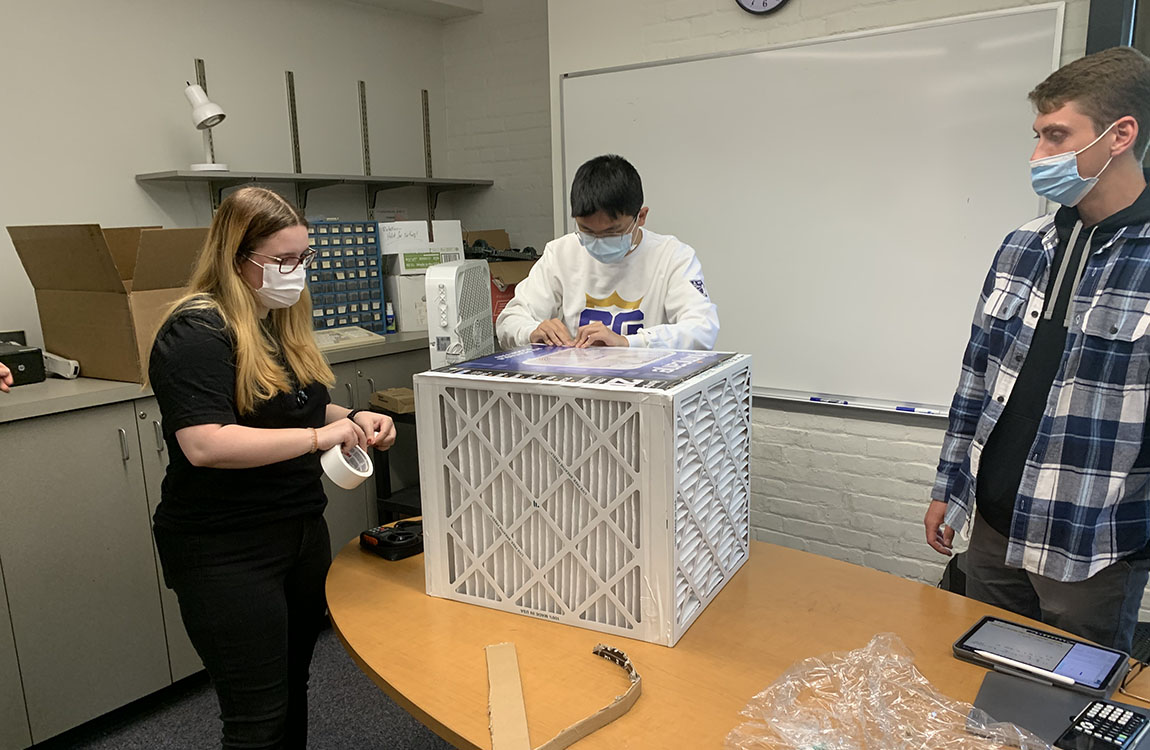Physics Club Assembles DIY Air Cleaner
The Corsi-Rosenthal Box is a cost-effective way to filter out airborne virus particles, pollen, dust and more.By: Grace Oddo ’22 Wednesday, May 25, 2022 01:27 PM
 Physics Club students assemble a Corsi-Rosenthal Box.
Physics Club students assemble a Corsi-Rosenthal Box.The Muhlenberg College Physics Club recently researched and assembled a Corsi-Rosenthal Box, a DIY air-cleaner that reduces potential indoor exposure to airborne virus particles. Composed of a box fan, MERV-13 filters and a cardboard box, this air purifier is a simple, effective way to reduce exposure to airborne virus particles, including those that can cause COVID-19.
Adam Clark, associate professor of physics and chair of the department, has been interested in studying the physics of viruses, particularly COVID-19, since the onset of the pandemic. “As early as June 2020, it was believed that SARS-CoV-2 was an airborne virus, transmitted by aerosol particles in a much wider range of droplet sizes than was being publicly reported by many health organizations,” Clark says. “A little bit later I stumbled onto the plans for the Corsi-Rosenthal Box and learned that aerosol scientists … were recommending their use. I suggested the Physics Club could build one as a project.”
Resurrected this year by faculty advisor Professor of Physics Brett Fadem and student Hunter Caplan ’24, the Physics Club is a group of students seeking to apply their physics knowledge to out-of-the-classroom activities. The club meets every Friday afternoon to discuss literature, watch and discuss a variety of physics demonstrations or engage in a hands-on project
The Physics Club constructed its Corsi-Rosenthal Box on April 29, and it is currently in the physics suite in the Trumbower Science Building. Clark hopes that after some basic improvements to the filter, more can be constructed and placed in other spaces around Muhlenberg’s campus.
“I think Corsi-Rosenthal Boxes across campus could be an important health and safety measure if we see a resurgence in COVID cases sparked by a new variant,” Clark says.
